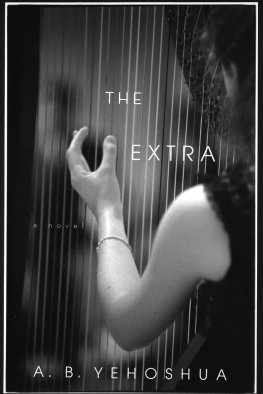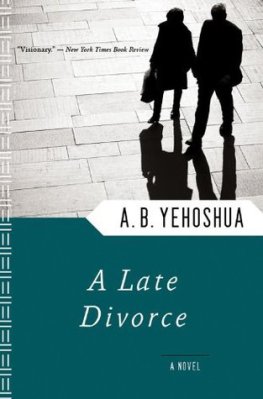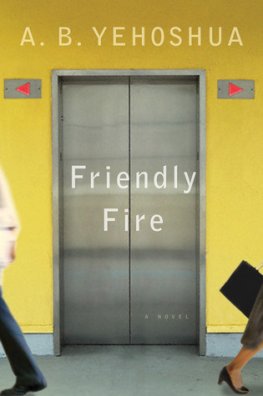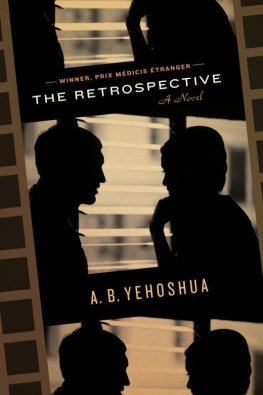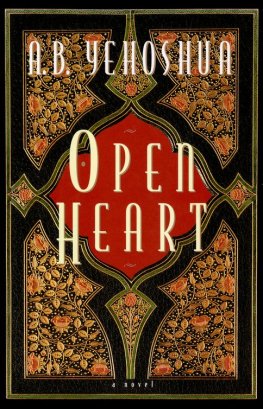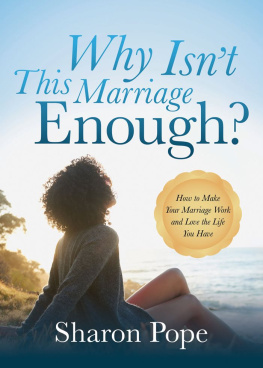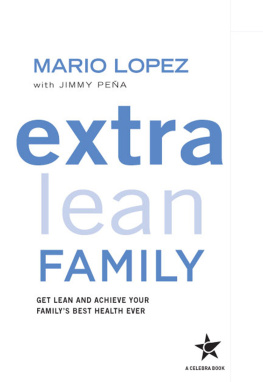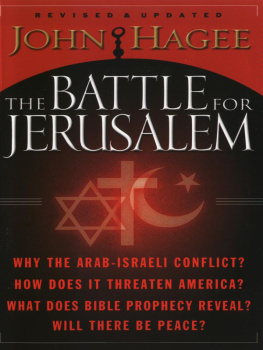For Ika, my beloved, my partner
AT FOUR IN THE MORNING the cell phone rings, its alarm forgotten from the day before, yet she doesnt turn off the wistful melody planted in the gadget by an elderly flutist who wanted to be remembered during her long visit to Israel. Nor, when quiet is restored, does she curl up under her parents warm quilt to resume her interrupted sleep. Instead she tugs lightly on the levers of the electric bed and elevates its head, so that while still lying down she can scan the dawning Jerusalem sky, in search of the planet for which she was named.
When she was a child, her father told her to look for that planet before sunrise or just after sunset. Even if you dont find yourself in the sky, he said, its important to look up now and then, at least at the moon, which is smaller than your planet, just as your brother is smaller than you, but seems bigger to us because its closer.
And so, on this visit to Israel perhaps because of her forced unemployment, or else her temporary job as a movie extra, which sometimes requires working at night she often lifts her eyes to the Israeli skies, less hazy than those over Europe.
On her brief visits to Israel in the years before her fathers death, she would stay with old friends from the Academy of Music rather than at her parents home. Contrary to what her brother, Honi, thought, this was not out of distaste for the new Orthodox neighbors who were turning the neighborhood black. Actually she, who in recent years had kept her distance from Jerusalem and enjoyed the secure and liberal milieu of Europe, found it easy to believe in respectful, tolerant coexistence with a minority, even as it showed signs of becoming a majority. After all, in her youth, when she practiced her music on Shabbat, the neighbors did not protest.
In the ancient Temple they would play the harp on religious holidays, Mr. Pomerantz, the handsome Hasid who lived one floor above, once told her. So its nice for God-fearing people to know that youre now practicing for the coming of the Messiah.
But will they also let girls like me play music in the new Temple? demanded the young musician, red-faced.
Also girls like you, affirmed the man, gazing at her, and if, when the Messiah comes, the priests wont let you because youre a girl, well turn you into a handsome lad.
Even this minor memory strengthens her belief in a local climate of tolerance, and unlike her brother, who fears his mothers besiegement by the ultra-Orthodox, Noga watches their bustling lives with no grudge or complaint, merely with the amused eye of a tourist or folklorist who welcomes all the songs of the world to sing out in full color.
After her marriage, she had lived in Jerusalem for a few years with her husband, Uriah, but after leaving Jerusalem, and subsequently her husband, she preferred, on her occasional Friday night visits, to return after Shabbat dinner to Tel Aviv. Her parents intimacy, which only deepened in old age, made things harder for her, not easier. Theyd said nothing about her refusal to have children, had even made their peace with it, and still she sensed that it was a relief for them that she not spend the night in their space. That way she would not intrude on a couple fiercely faithful to their ancient, narrow wooden bed, where they would snuggle together in serene harmony. If one of them was alarmed by a strange dream, or woke up over some fresh worry, the other would immediately wake up too and continue a conversation that apparently took place while they were sleeping.
Once, on a stormy Friday, lacking transportation back to Tel Aviv, Noga stayed over and slept in her childhood room, and during the night, between whistling winds and flashes of lightning, she saw her father walking with tiny steps from room to room, his head bent submissively and hands pressed to his chest, Buddhist fashion.
From the double bed, a voice of gentle exasperation: And whats the matter now?
The lightning and thunder turned me all of a sudden from a Jew into a Chinaman, the father explained in a whisper, nodding his head graciously at the masses of Chinese who had come to wish him well.
But the Chinese dont walk like that.
What?
They dont walk that way, the Chinese.
So who does walk like that?
Japanese, only Japanese.
Then Im Japanese, her father conceded, shortening his steps and circling the narrow double bed, bowing to the bride of his youth who lay before him. What can I do, my love? The storm blew me from China to Japan and turned me into a Japanese.
THE SINO-JAPANESE MAN was seventy-five when he died, amiable and funny to his last breath. One night his wife woke up to complete a thought shed had before falling asleep, but was met with silence. At first she interpreted the silence as agreement, until she grew suspicious, tried shaking her husband and, while shaking him, realized that her lifelong companion had left the world with no pain and no complaint.
During the mourning period, as she grieved with relatives and friends, she spoke with amazement but also resentment about his silent and rude exit. Since her husband had been an engineer, the supervisor of the water department of the city of Jerusalem, she joked that he had secretly engineered his own death, blocking the flow of blood to his brain the way he had sometimes blocked the water supply of ultra-Orthodox Jews who refused to pay their water bills to the Zionist municipality. Had he revealed to me the secret of an easy death, she complained to her son and daughter, I would spare you the ordeal of mine, which I know will take longer and be harder for all of us.
Well manage the ordeal, her son solemnly promised, on condition that you finally leave Jerusalem. Sell the apartment its value goes down by the day, thanks to the Orthodox and move to a retirement home in Tel Aviv, near my house, near your grandchildren, who are afraid to visit Jerusalem on Shabbat.
Afraid? Of what?
That some religious fanatic will throw stones at the car.
So park outside the neighborhood and walk with the children, itll be good exercise for all of you. Fear of the Orthodox is unbecoming, in my opinion.
Its not exactly fear more like disgust.
Disgust? Why disgust? Theyre simple people, and like anyplace else, there are good ones and bad ones.
Of course, but you cant tell them apart. They all look alike, and even if theyre all angels, theyre not going to look after you. So they should stay where they are, and you, now that youre alone, should come and live near us.
His sister kept quiet, not because what he was saying wasnt logical, but because she didnt believe that their mother would consent to leave Jerusalem that shed agree to give up an apartment, old but comfortable and large, where she had spent most of her life, to imprison herself in a tiny flat in an old folks home, in a city she considered inferior.
But Honi pressured his sister too. Now, after their fathers death, it would be hard for him to look after his mother. If youve left the country to escape responsibility for our parents, he accused his silent sibling, at least help the one who stays on duty.
Now she took offense. She had not left Israel to escape responsibility but because she had not found a position with any of the local orchestras.
You would have been accepted by many Israeli orchestras if you hadnt insisted on playing an aristocratic instrument instead of a democratic one.
Democratic? She laughed. Whats a democratic instrument?
Flute, violin, even trumpet.
Trumpet? Youll regret it.
I regret it already, but before you leave the country again, help me convince Ima to leave Jerusalem. That way, you can stay in Europe with your mind at ease till the end of your days.

